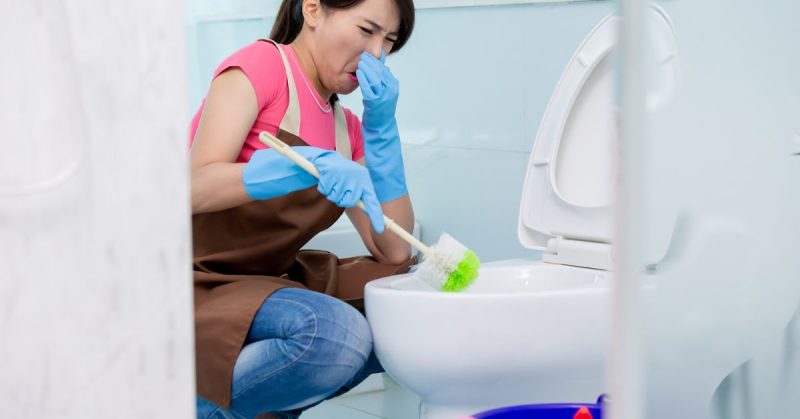Let’s uncover the mystery of why commercial restrooms have unpleasant odors and discover tips to keep your business from leaving a bad impression.
Let’s face it, nobody enjoys walking into a restroom that smells like a science experiment gone wrong. Maintaining a fresh-smelling commercial restroom can enhance customer experience and boost your business reputation. So, what’s causing these funky odors, and how can you stop them? Let’s review some reasons why your commercial restroom has unpleasant odors.
Defining Commercial Restrooms
Commercial restrooms are public facilities for employees, customers, and other visitors. Unlike residential restrooms, which cater to the private needs of families, commercial restrooms accommodate large numbers of people. This necessitates a focus on durability, efficiency, and hygiene.
Typically, commercial restrooms feature fixtures and materials chosen for their resilience and ease of maintenance. For instance, you’ll find stainless steel or porcelain fixtures, automatic flush systems, and touchless faucets to enhance sanitation. Additionally, the layout usually includes multiple stalls or urinals to manage high traffic.
Common Sources of Restroom Odors
Commercial restrooms can have unpleasant odors due to bacterial growth, plumbing issues, inefficient waste disposal, and airborne contaminants. Bacteria flourishes in damp, warm environments, making public restrooms a prime location for bacteria to thrive.
For example, damp floors or uncleaned corners can harbor bacteria, leading to unpleasant smells. Common areas for bacterial accumulation include sinks, toilets, and poorly maintained grout lines.
Plumbing issues such as leaks, clogs, and backflow also contribute to odor problems. A leaking faucet or a clogged drain can cause stagnant water, which becomes a breeding ground for smelly bacteria and mold.
Inefficient waste disposal practices, such as overflowing trash bins, can further exacerbate unpleasant smells in the restroom. Failing to regularly empty trash bins or improperly disposing of sanitary products can lead to odor buildup.
Finally, while air fresheners might temporarily mask odors, addressing the root causes of an unpleasant smell remains essential for long-term odor control.
Impact on Businesses
Unpleasant odors can significantly affect your business. For customers, a foul-smelling restroom detracts from their overall experience, potentially reducing their willingness to return. Employees also feel the impact, as restroom conditions influence their comfort and productivity.
Moreover, odors can tarnish your brand image, leaving a lasting negative impression. Addressing these issues enhances your establishment’s atmosphere and strengthens your reputation as a business that values its patrons and staff.
Solutions to Mitigate Restroom Odors
Implement a robust cleaning schedule to keep restrooms odor-free and impeccably clean. For example, you can create a checklist for cleaning commercial restrooms to ensure you cover all bases. Additionally, consider integrating advanced odor control technologies, such as air purifiers and scent dispensers, to maintain a fresh and inviting restroom.
Lastly, select the right cleaning products to mitigate odor. Enzymatic cleaners are your go-to solution, as they actively break down organic matter, neutralizing odors at their source rather than just masking them.
The unpleasant odors in commercial restrooms are often a result of a combination of factors, including plumbing issues, inadequate cleaning, and bacterial growth. By addressing these issues through proper maintenance and cleaning practices, you can significantly improve the air quality and overall impression of your restroom facilities. Not only will this enhance the experience for your customers and employees, but it can also contribute to a healthier and more pleasant environment.
